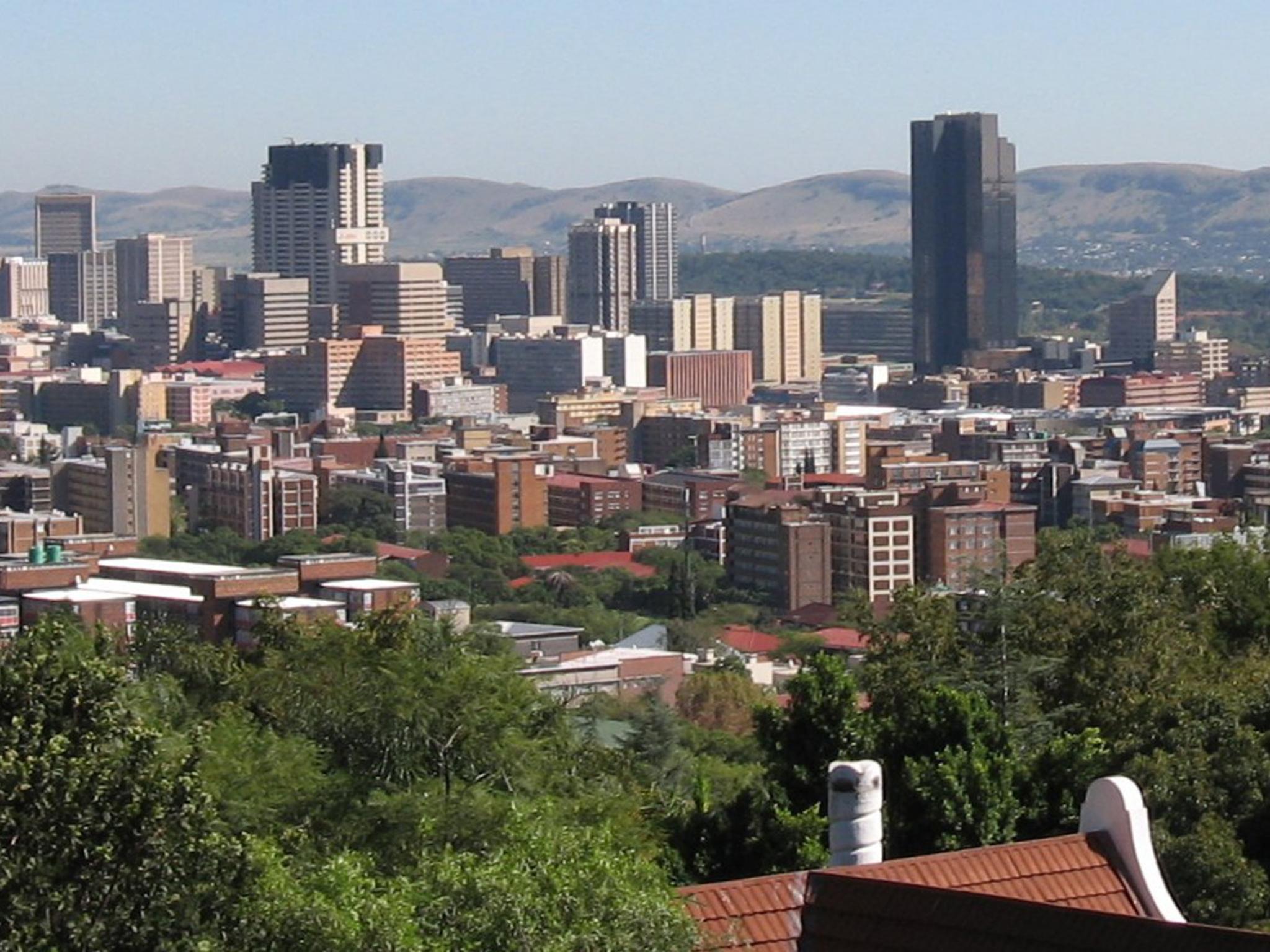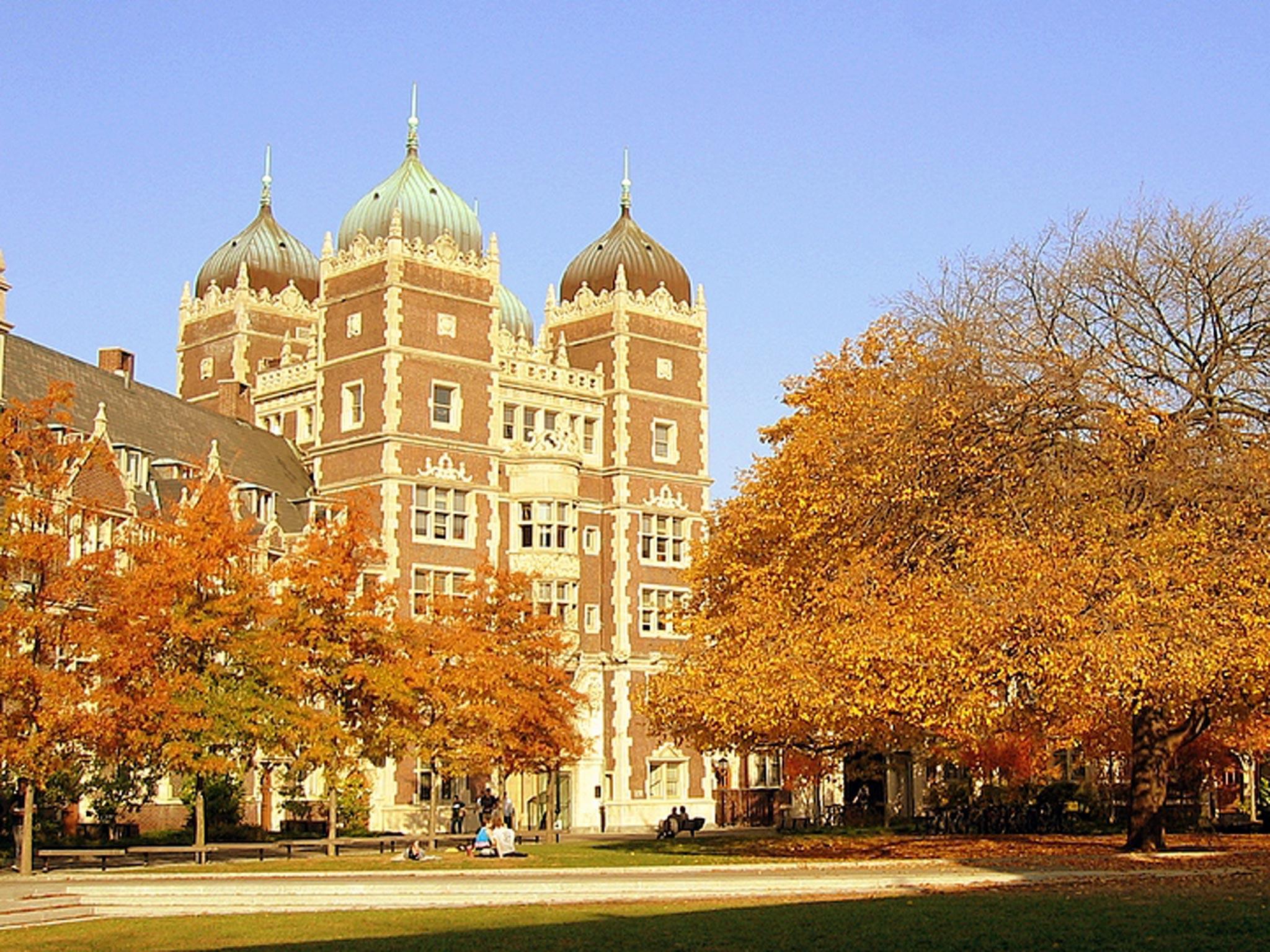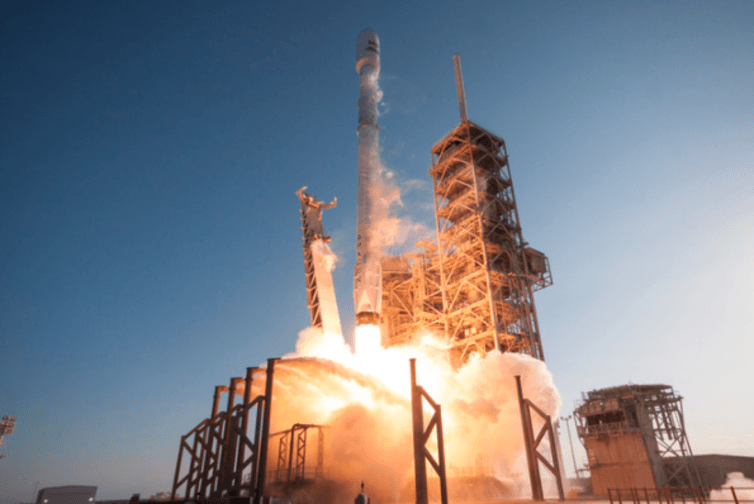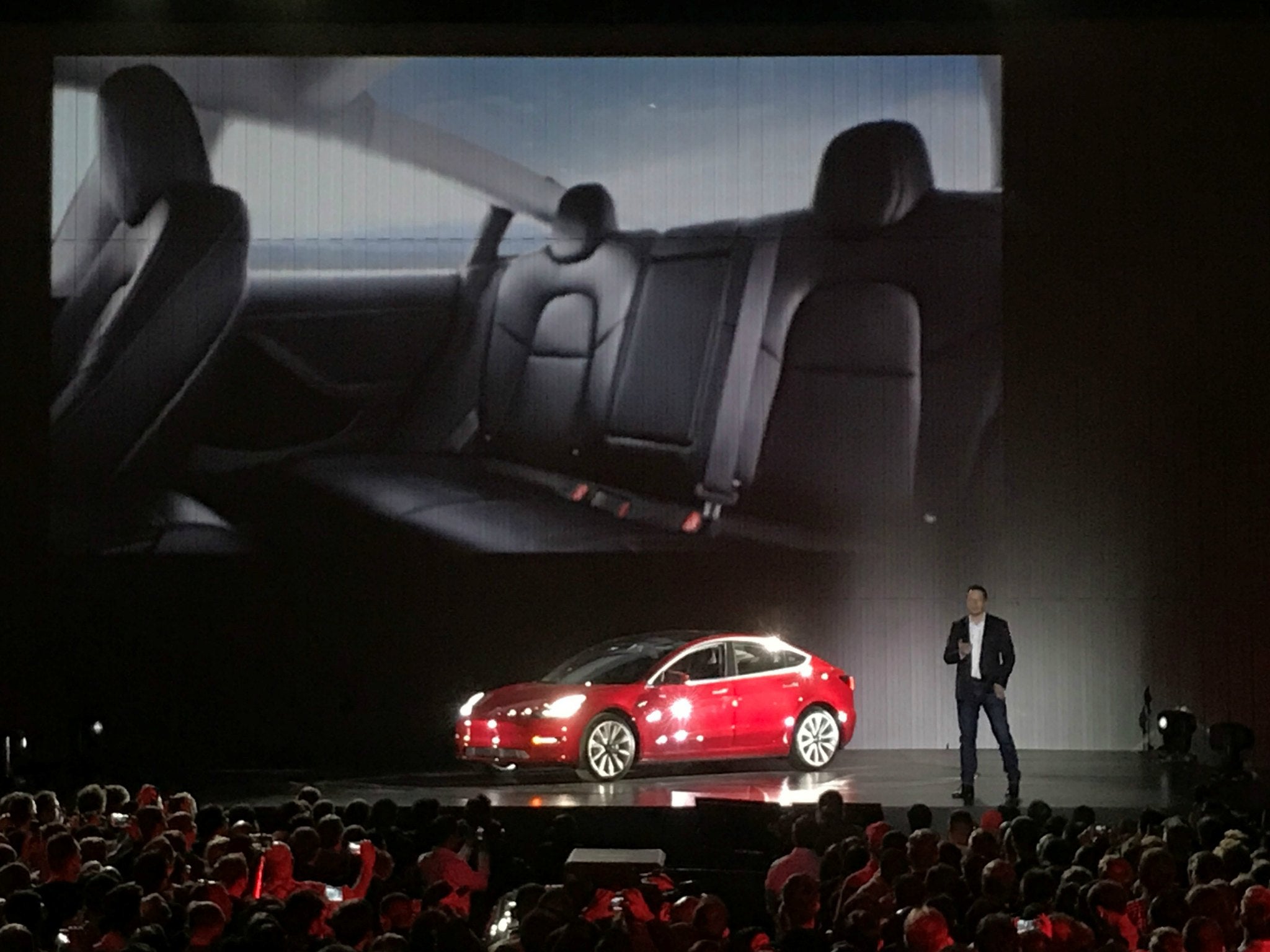The incredible story of Elon Musk: from getting bullied in school to the most interesting man in tech

Your support helps us to tell the story
From reproductive rights to climate change to Big Tech, The Independent is on the ground when the story is developing. Whether it's investigating the financials of Elon Musk's pro-Trump PAC or producing our latest documentary, 'The A Word', which shines a light on the American women fighting for reproductive rights, we know how important it is to parse out the facts from the messaging.
At such a critical moment in US history, we need reporters on the ground. Your donation allows us to keep sending journalists to speak to both sides of the story.
The Independent is trusted by Americans across the entire political spectrum. And unlike many other quality news outlets, we choose not to lock Americans out of our reporting and analysis with paywalls. We believe quality journalism should be available to everyone, paid for by those who can afford it.
Your support makes all the difference.What can't Elon Musk do?
As CEO of SpaceX and Tesla, founder of The Boring Company, and cofounder of OpenAI, Musk seems to be everywhere all at once, pushing all kinds of incredible new technologies. He's said he won't be happy until we've escaped Earth and colonized Mars.
Between space rockets, electric cars, solar batteries, research into killer robots, and the billions he's made along the way, Musk is basically a real-life Tony Stark — which is why he served as an inspiration for "Iron Man."
But it wasn't always easy for Musk. Here's how he went from getting bullied in school to small-time entrepreneur to CEO of two major companies that seem like they're straight out of science fiction — and how he almost went broke along the way.
Elon Musk was born on June 28th, 1971, in Pretoria, South Africa.

His father said he's "always been an introvert thinker." "Where a lot of people would go to a great party and have a great time and drink and talk about all sorts of things like rugby or sport, you would find Elon had found the person’s library and was going through their books," Musk's dad, electronics engineer Errol Musk, said. (Source: Fortune)
Musk's mother is a professional dietitian and model. Maye Musk, a Canadian national, has appeared on boxes of Special K cereal and the cover of Time magazine. After their parents divorced in 1979, the nine-year-old Musk and his younger brother, Kimbal, decided to live with their father.
In 1983, at the age of 12, Musk sold a simple game called "Blastar" to a computer magazine for $500. Musk described it as "a trivial game … but better than Flappy Bird." (Source: WaitButWhy)
Still, Musk's school days weren't easy — he was once hospitalized after being beaten by bullies.The bullies threw Musk down a set of stairs and beat him until he blacked out, according to Ashlee Vance in his book "Elon Musk: Tesla, SpaceX, and the Quest for a Fantastic Future."
After graduating from high school, Musk moved to Canada and spent two years studying at Queen's University in Kingston, Ontario. Musk moved to Canada with his mother Maye, his sister Tosca, and his brother Kimbal. But he finished his studies at the University of Pennsylvania, taking home degrees in physics and economics.
While studying at the University of Pennsylvania, Musk and a classmate rented out a 10-bedroom frat house and turned it into a nightclub. The move, which Musk undertook with Adeo Ressi, was one of his first entrepreneurial experiments. (Source: Vogue)

After graduation, Musk traveled to Stanford University to study for his PhD — but he barely started the program before leaving it. He deferred his admission after only two days in California, deciding to test his luck in the dot-com boom that was just getting underway. He never returned to finish his studies at Stanford.
With his brother, Kimbal, Musk launched Zip2. The brothers' father gave them $28,000 to start the website, which provided city travel guides to newspapers like the New York Times and Chicago Tribune. While Zip2 got off the ground, Musk literally lived in the office and showered at a local YMCA. The hard work paid off when Compaq bought Zip2 in a deal worth $341 million in cash and stock, earning Musk $22 million. (Source: Stanford)
Musk next started X.com, an online banking company. He launched the company in 1999 using $10 million of the money he got from the Zip2 sale. About a year later, X.com merged with Confinity, a financial startup cofounded by Peter Thiel, to form PayPal. Musk was named the CEO of the newly minted PayPal. But it wouldn't last long.In October 2000, he started a huge fight among the PayPal co-founders by pushing for them to move their servers from the free Unix operating system to Microsoft Windows. PayPal cofounder and then-CTO Max Levchin pushed back, hard. While Musk was en route to Australia for a much-needed vacation, PayPal's board fired him and made Thiel the new CEO. "That's the problem with vacations," Musk told Fortune years later about his ill-fated trip in late 2000.

But things worked out for Musk — he made another windfall when eBay bought PayPal in late 2002. As PayPal's single biggest shareholder, he netted $165 million of the $1.5 billion price eBay paid.
Even before the PayPal sale, Musk was dreaming up his next move, including a crazy plan to send mice or plants to Mars. A lifelong fan of science fiction, Musk even tried to buy decommissioned Soviet missiles for the purpose. But the Russian sellers wanted $8 million or more for each, and Musk thought he could build his own for less. (Source: Bloomberg)
In early 2002, Musk founded the company that would be known as Space Exploration Technologies, or SpaceX. Musk's goal was to make spaceflight cheaper by a factor of ten. SpaceX's first vehicles were named after Star Wars' Millennium Falcon spaceship. They were the Falcon 1 and 9. Another early vehicle was named after the song "Puff the Magic Dragon." The name of the spacecraft, the Dragon, was Musk's jab at skeptics who told him SpaceX would never be able to put vehicles into space.
SpaceX's long-term goal is to make colonizing Mars affordable. SpaceX won't file for an initial public offering until what Musk calls the "Mars Colonial Transporter" is flying regularly, he said.
Musk has also been keeping plenty busy here on Earth, particularly with Tesla Motors. In 2004, Musk made the first of what would be $70 million of total investments in Tesla, an electric car company co-founded by veteran startup exec Martin Eberhard. Musk took an active product role at Tesla, helping develop its first car, the Roadster. The all-electric Roadster launched in 2006, when Musk was serving as Tesla's chairman. He's now its CEO also.
As if that wasn't enough, Musk came up with the idea for SolarCity, a solar energy company. Musk gave his cousins Peter and Lyndon Rive the working capital to get SolarCity off the ground in 2006.
But back at Tesla, all was not well. With Eberhard as CEO, Tesla was burning way more cash than it was taking in. In 2007, Musk staged an boardroom coup, first ousting Eberhard from his CEO seat and then from the company's board and executive suites entirely. In 2008, with the financial crisis seriously limiting his options, Musk personally saved Tesla from bankruptcy. Musk invested $40 million into Tesla and loaned the company $40 million more. Not coincidentally, he was named the company's CEO the same year.
But between SpaceX, Tesla, and SolarCity, Musk very nearly went broke. He describes 2008 as "the worst year of my life." Tesla kept losing money, and SpaceX was having trouble launching its Falcon 1 rocket. By 2009, Musk was living off personal loans just to survive. (Source: VentureBeat)
Around the same time, Musk was going through a divorce. Musk had six sons with Justine Musk, a Canadian author.
But right around Christmas 2008, things started looking up again. Musk got two pieces of good news: SpaceX landed a $1.5 billion contract with NASA to deliver supplies into space, and Tesla finally found more outside investors. By 2010, things had seriously turned around, with Tesla holding a successful initial public offering. Tesla raised $226 million in the IPO that June, becoming the first car company to go public since Ford in 1956. To get his finances back on track, Musk sold shares worth about $15 million in the offering.
Musk's extraordinary career was starting to get noticed in other circles, too, most notably in Hollywood. Robert Downey Jr.'s portrayal of Tony Stark in the "Iron Man" movies is at least partially based on Musk. Musk even had a cameo in "Iron Man 2."
All the while, Musk's personal life has been in continual flux. In 2008, Musk started dating actress Talulah Riley. They got married in 2010 and divorced in 2012. In July 2013, they remarried. In December 2014, Musk filed for a divorce but withdrew the paperwork. In March 2016, Riley filed for divorce; that divorce was finalised in October.
Work is going well, though, particularly at SpaceX. By the end of 2015, SpaceX had made 24 launches on assignments like resupplying the International Space Station, setting lots of records along the way. In 2016, the SpaceX Falcon 9 made the first successful water landing of a reusable orbital rocket.

Musk can't stop coming up with new ideas, either. Among his latest is the Hyperloop. A super-high speed train that travels in a vacuum tube, the Hyperloop could theoretically transport passengers from Los Angeles to San Francisco in 30 minutes. Musk is letting other companies build their own versions.
Musk also recently started another company — The Boring Company, which is more interesting than its name suggests. Launched last year, the Boring Company's mission is to dig a network of tunnels under and around cities for high-speed, no-traffic driving. Musk has said he's discussed with the White House the idea of constructing a tunnel between New York and Washington D.C. that could be used for a hyperloop.
And in late 2015, Musk co-founded OpenAI, a nonprofit dedicated to researching artificial intelligence and ensuring it doesn't destroy humanity. Musk has expressed concern that the race for better AI could end up sparking a third world war.
At the same time that he's raising concerns bout AI, Musk is promoting Tesla's self-driving car capabilities. Tesla's "autopilot" system is available on all three of its models, including the new Model 3, a lower-cost car launched earlier this year that brings the company closer to its goal of making electric vehicles affordable for the masses. Last year, Tesla bought SolarCity in a $2.6 billion deal. The acquisition brought Musk's two big green-tech ideas under one roof.

So far, 2017 has been a rocky year for Musk, at least politically. Musk joined President Trump's business advisory council, a move which caused a huge public backlash. He initially defended the move, saying he would be able to use his proximity to the White House to effect change. But he quit after Trump pulled the US out of the Paris Agreement on climate change.
Read more:
• A faulty Hotpoint fridge was the cause of Grenfell Tower's catastrophic blaze
• Brexit one year on proves it has been a diabolical and costly waste of time
• New poll finds the British public have turned against a 'Hard Brexit'
Read the original article on Business Insider. © 2016. Follow Business Insider UK on Twitter.
Join our commenting forum
Join thought-provoking conversations, follow other Independent readers and see their replies
Comments